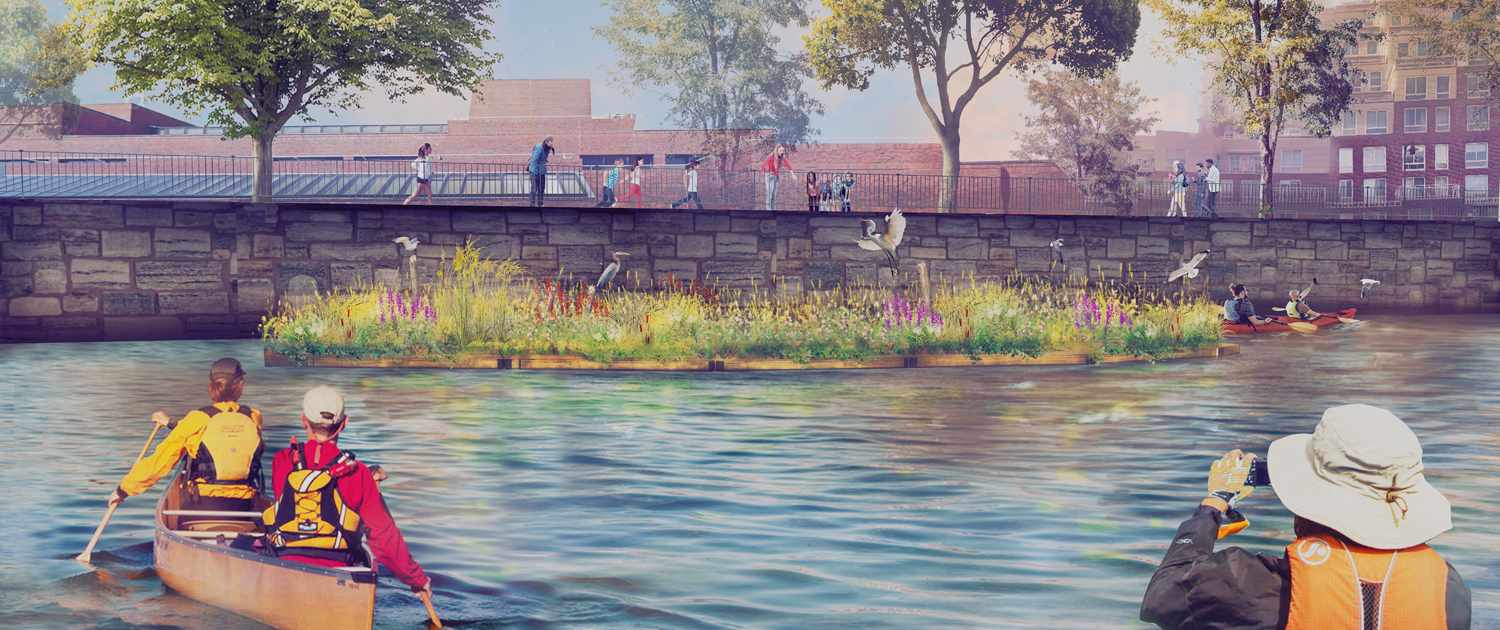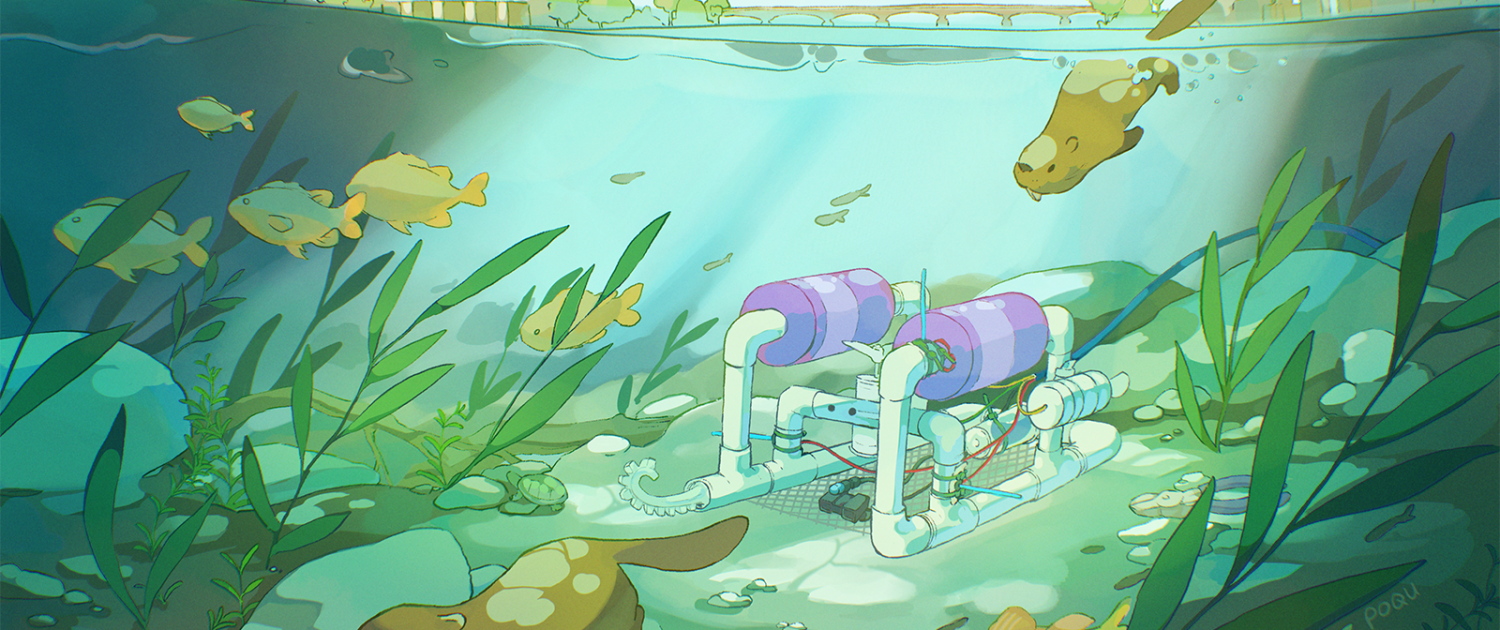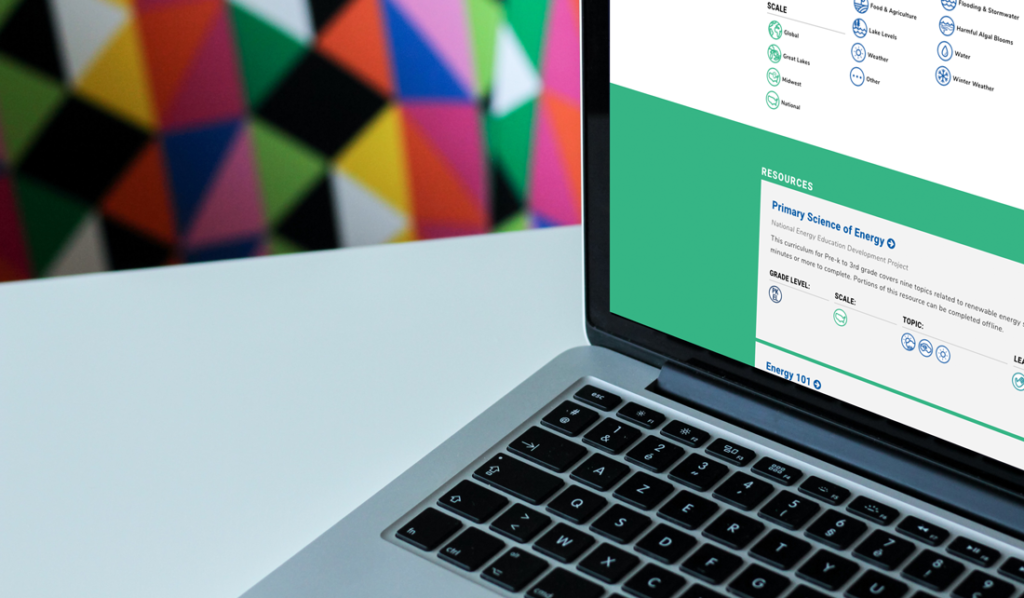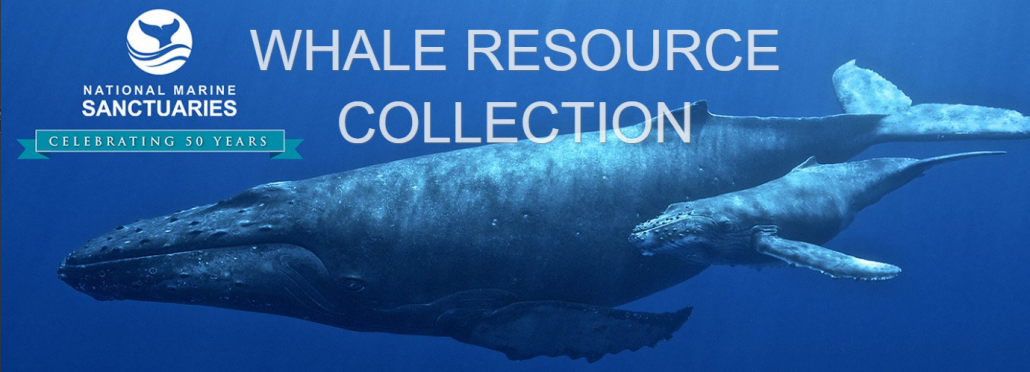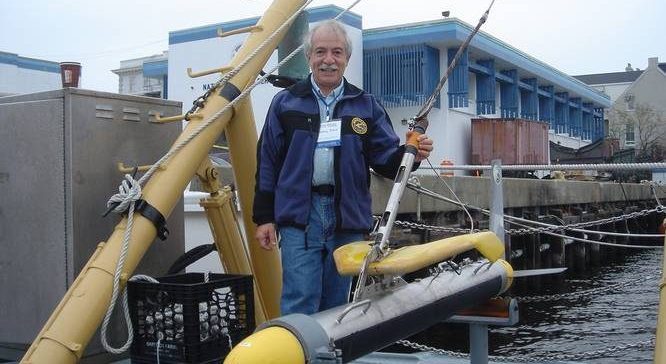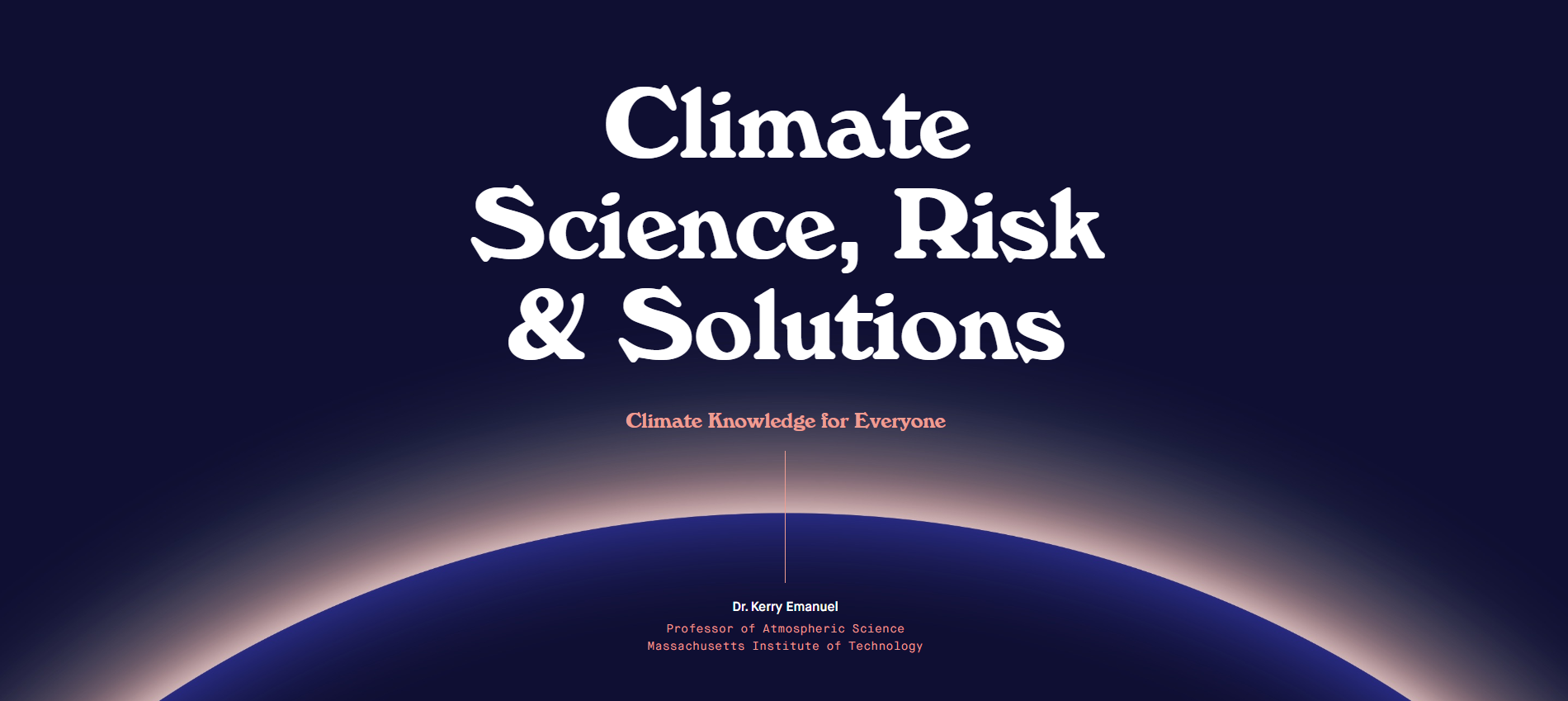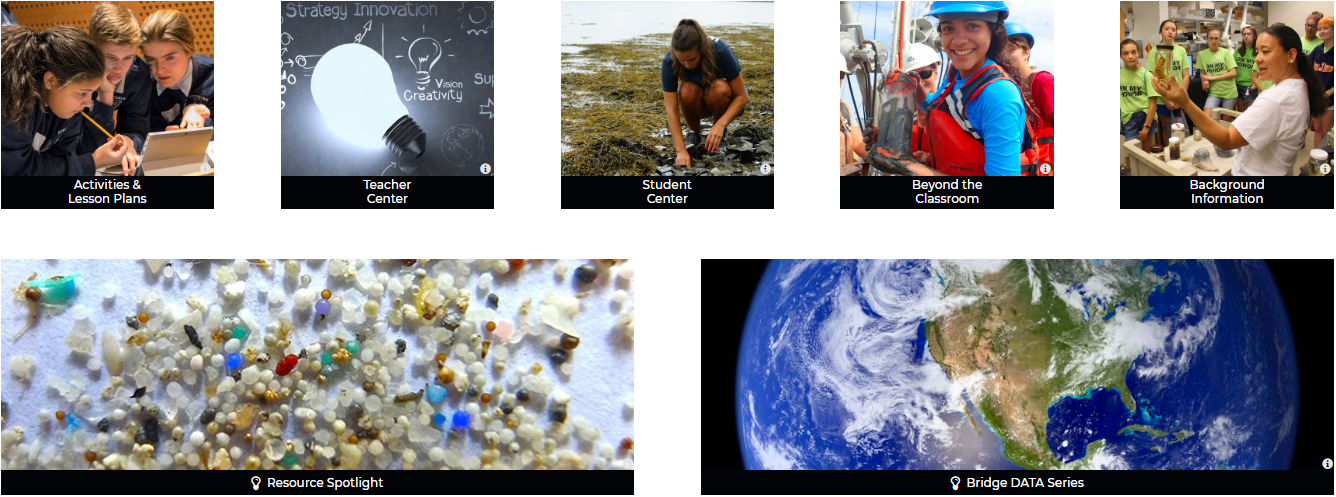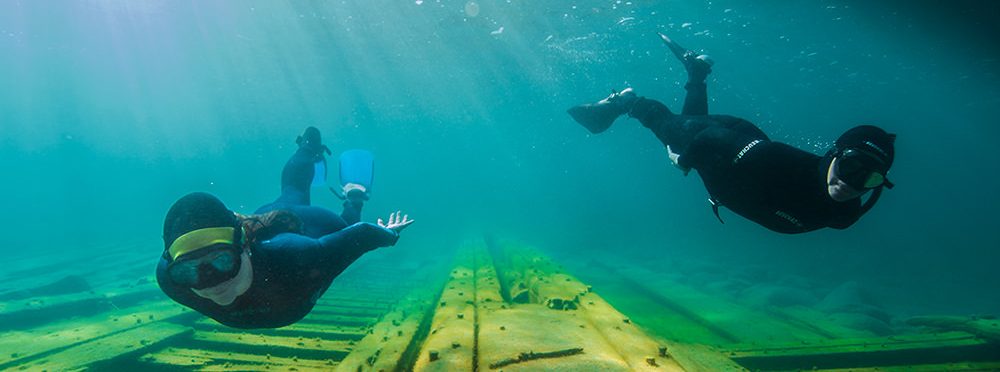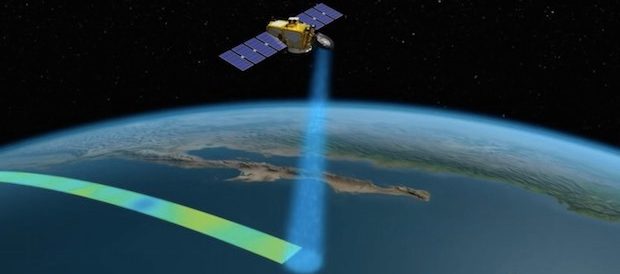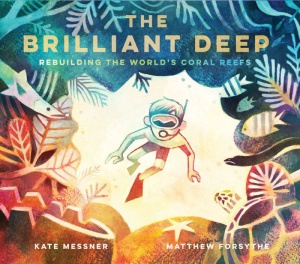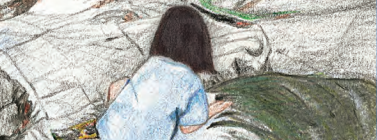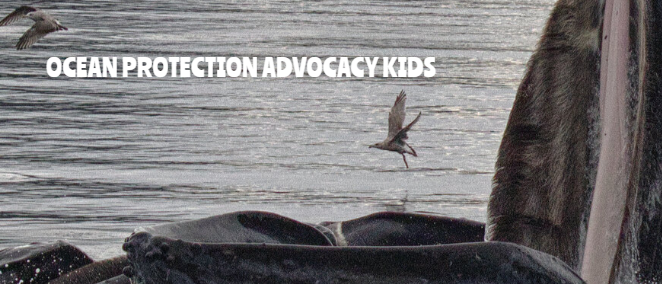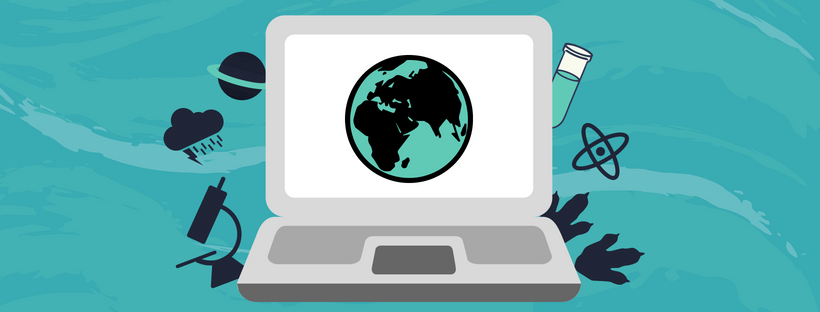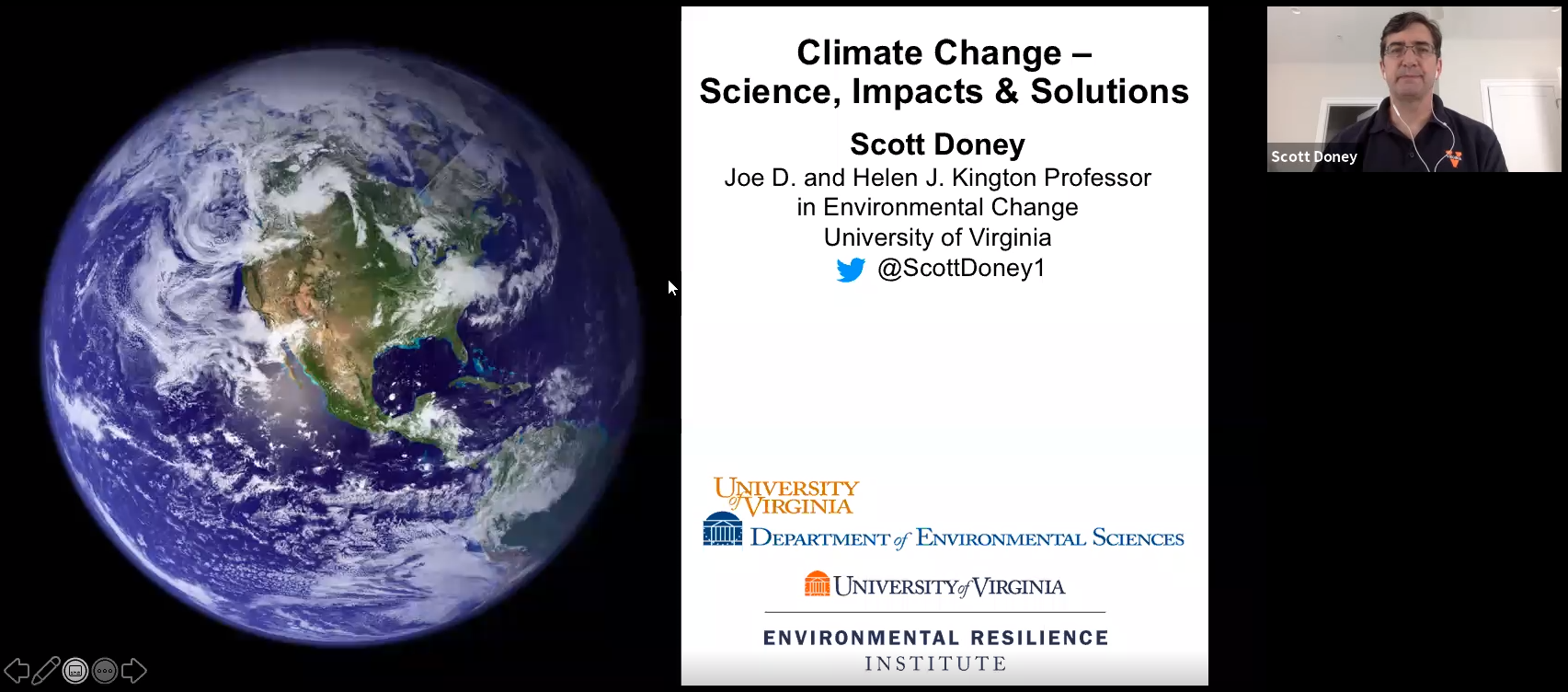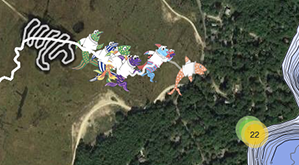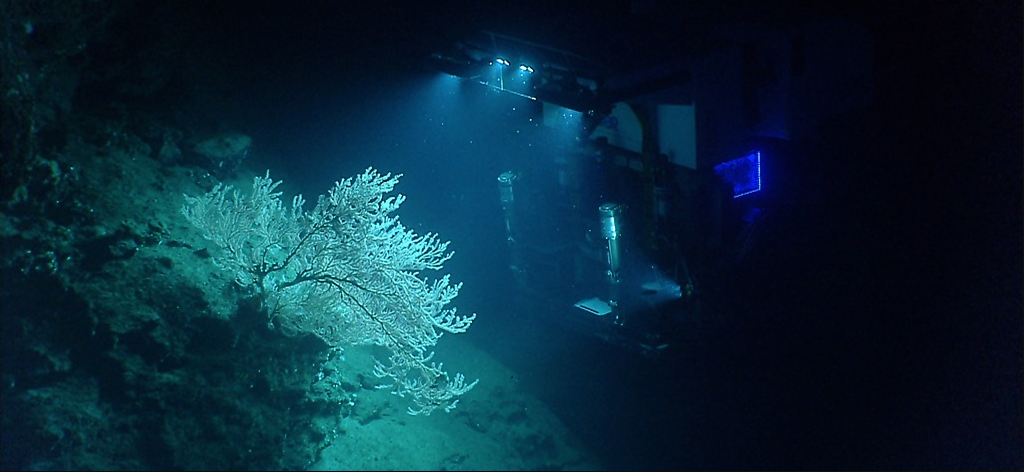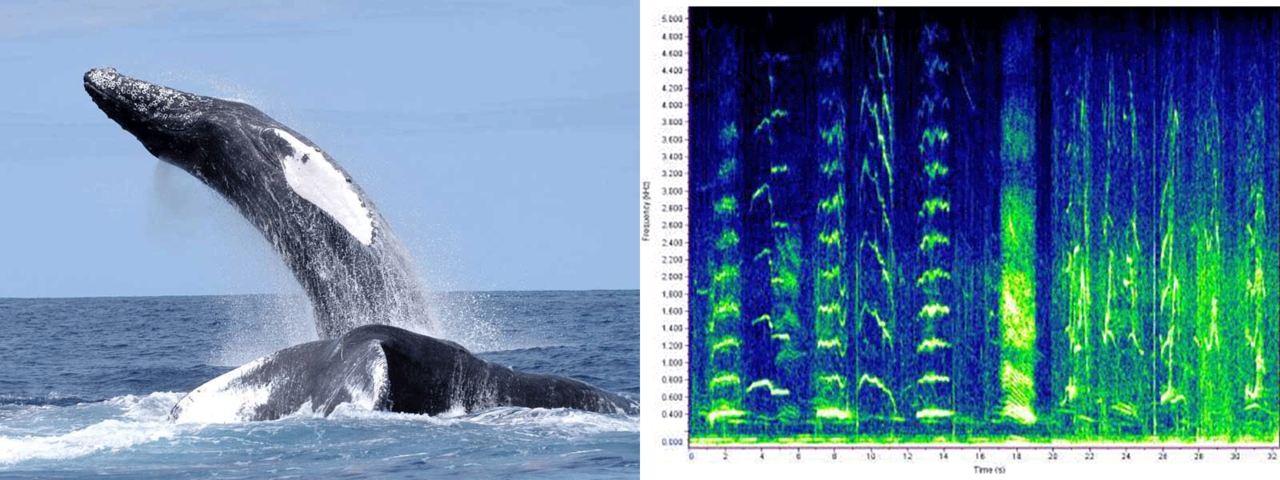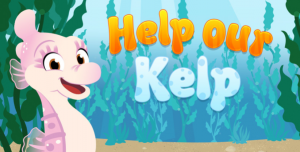NOAA RESOURCE COLLECTIONS
- *NEW* Marine Debris Resource Collection – Marine debris threatens the ocean’s ecosystems and resources, the economy, and more. Explore lesson plans and activities, and learn about NOAA’s efforts to tackle marine debris in national marine sanctuaries.
- More: Shark Resource Collection; Dolphin Resource Collection; Sea Turtle Resource Collection; Ocean Acidification Resource Collection; Shipwrecks Resource Collection; Coral Reef Resource Collection; Whale Resource Collection; Sea to Sky
WEBINAR SERIES
- National Marine Sanctuaries
- NOAA Live! Series by Woods Hole Sea Grant + NOAA RCN
- NOAA Ocean Today Creep Into the Deep Collection
- NOAA Ocean Today Future of Ocean Farming Collection
- WHOI Ocean Encounters Series
PODCASTS
In response to the need for remote learning resources, MIT Sea Grant is compiling and developing at-home educational content.
CONTACT US
Interested in resources on a specific climate or marine topic? Email seagrantinfo@mit.edu or:
FLOATING WETLAND RESOURCES
MIT Sea Grant worked with the Charles River Conservancy to develop an educational science kit and curriculum to teach students about the Charles River Floating Wetland and connect them with local ecology. The kits have been integrated into the Cambridge Public Schools 6th Grade Rivers to the Sea Unit.
SEAPERCH II: NEW MODULES
SeaPerch is an underwater robotics program that started at MIT Sea Grant in 2003 and continues today through RoboNation. SeaPerch trains teachers and students to build and navigate their own remotely operated vehicles, or ROVs. Now, MIT Sea Grant is introducing new SeaPerch II modules!
WEATHER & CLIMATE EDUCATION TOOLKIT
Illinois-Indiana Sea Grant curated over 60 e-learning resources by topic, grade level, location and learning mode. Teachers—whether parents, home school tutors or licensed professionals—can find what they need by using the search function to filter content.
SOLVE IT PODCAST FOR KIDS
How Do You Photograph A Great White Shark…Safely? Solve It Podcast for Kids interviews MIT Sea Grant Visiting Artist and underwater photographer Keith Ellenbogen
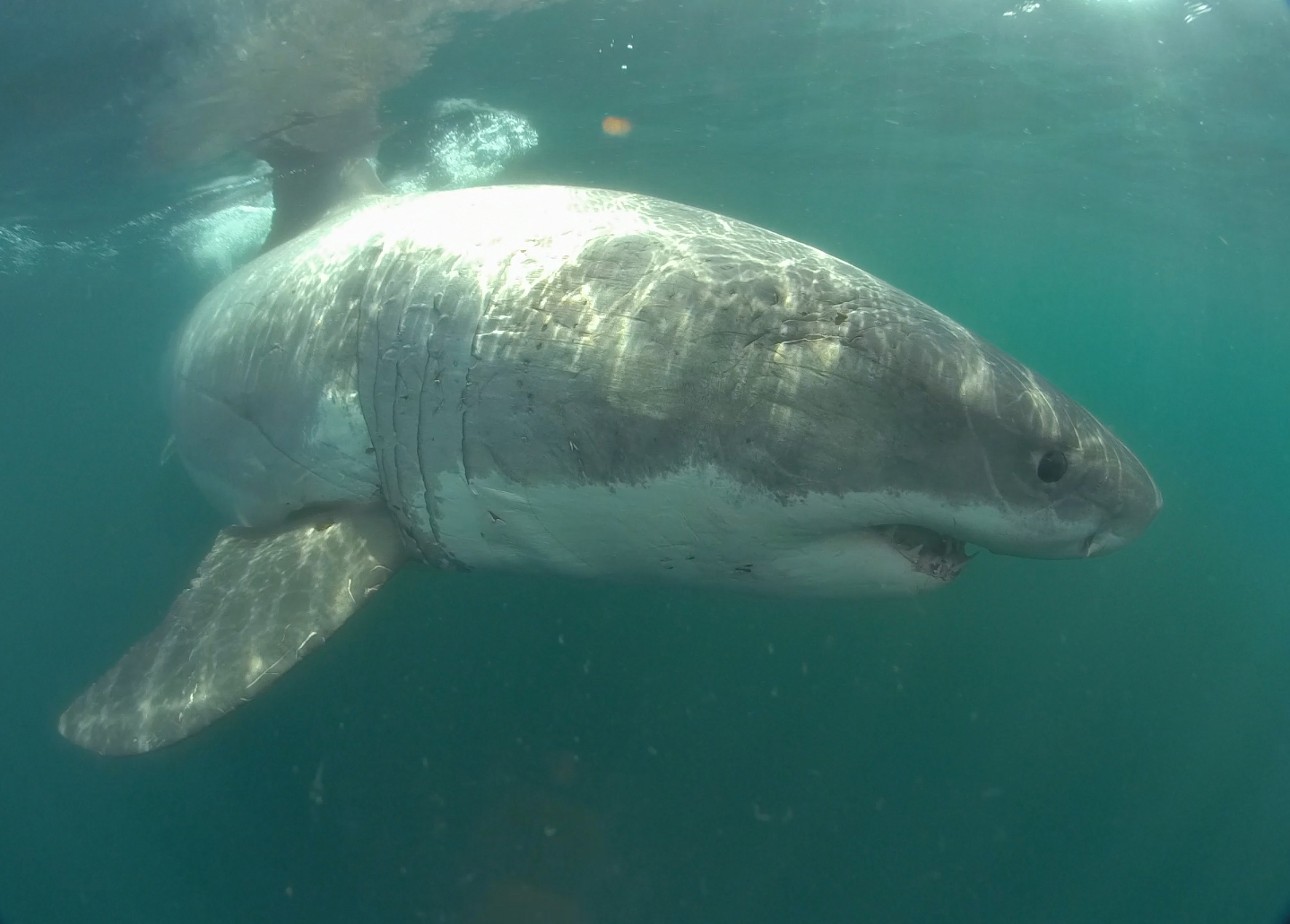
EXPLORE PARTNER RESOURCES
- National Sea Grant Education at Home
- Sea Grant BRIDGE Ocean Science Education
- Woods Hole Sea Grant Educational Resources
- NOAA Office of Education Science Activities for Kids
- NOAA National Ocean Service for Kids
- NOAA Marine Debris Program Activities and Curricula
- National Science Teaching Association (free 30-day)
- World Ocean Observatory Distance Learning Resources
NOAA SANCTUARIES WHALE RESOURCE COLLECTION
Whale Resource Collection – Whales are one of the oldest and largest animals on the planet. Various whale species can be found around the world from Alaska to Hawai`i to the Gulf of California. Explore a collection of videos, lesson plans, posters, webinars, web stories, and more.
View all NOAA Resource Collections, including Climate Change, Coral Reefs, and many more
UNDERWATER ENGINEERS
Episode 47 from The Past Foundation’s Learning Unboxed Podcast: Giving Back to a Future Generation of Underwater Engineers with Marty Klein
Marty Klein, president of Martin Klein Consulting, is a member of the MIT Sea Grant Advisory Committee. Marty did a lot of his work early on through his journey at MIT tied to remote sensing.
SANCTUARIES 360° VIDEO
These virtual reality voyages use 360-degree videos to highlight the amazing habitats, animals, and cultural resources you can find in each national marine sanctuary.
>>Explore All Videos
>>Lesson Plans
360° VR Coral Restoration
360° VR Sea Lion Encounter
360° VR Shipwreck Alley
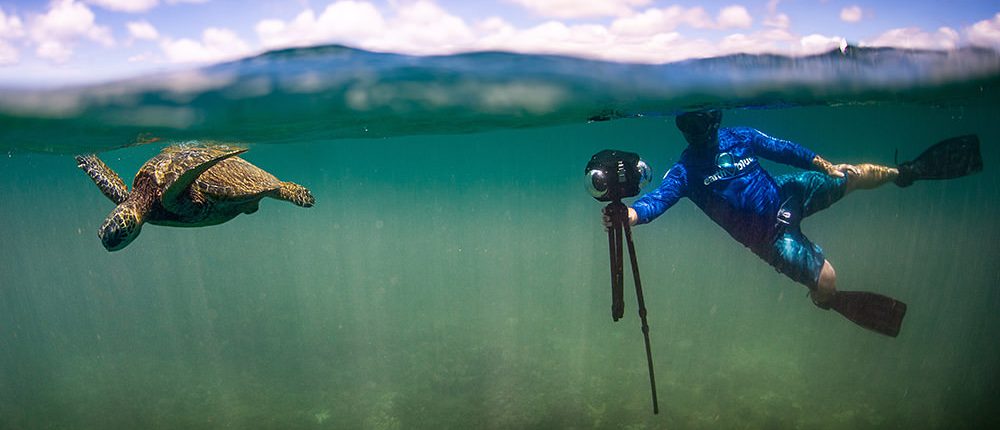
MIT CLIMATE PRIMER
Climate Science, Risk & Solutions | Climate Knowledge for Everyone
MIT Environmental Solutions Initiative, MIT Climate, and EAPS reveal a new way to learn about climate change: the MIT Climate Primer.
SEA GRANT – BRIDGE
Sea Grant – BRIDGE Ocean Science Education pools a variety of teacher-approved marine education resources, including activities just for students, and materials for teachers, including:
SANCTUARIES AT HOME
Sanctuaries At Home: Learn about the ocean, atmosphere, and Great Lakes while at home with NOAA’s Office of National Marine Sanctuaries.
- Games and Activities (K-6)
- NOAA Data in Classroom (Grades 5-8)
- ROV Curriculum (Middle + high school)
- Shipwrecks and Maritime Heritage Activities and Lessons (All ages)
- Ocean Acidification and Dungeness Crab Toolkit (Grades 4+)
NOAA LIVE WEBINARS
Learn what scientists do across a variety of NOAA offices through this series in conjunction with Woods Hole Sea Grant and the National Oceanic and Atmospheric Administration’s Regional Collaboration Network!
- The Ocean From Space (Grades 3-8)
- Marine Mammals in Our Backyard (Grades 2-6)
- Bird’s Eye View of Whales (Grades 2-6)
- More NOAA Live! Webinars (all Grades)
MIT FULL STEAM AHEAD
MIT Full STEAM Ahead online learning resources, K-12
In response to the need for online resources during the COVID-19 pandemic, a collection of resources for teaching and learning online for kids, educators, and parents. A collaboration between different labs at MIT including The Education Arcade and MIT Open Learning, and the Abdul Latif Jameel World Education Lab (J-WEL).
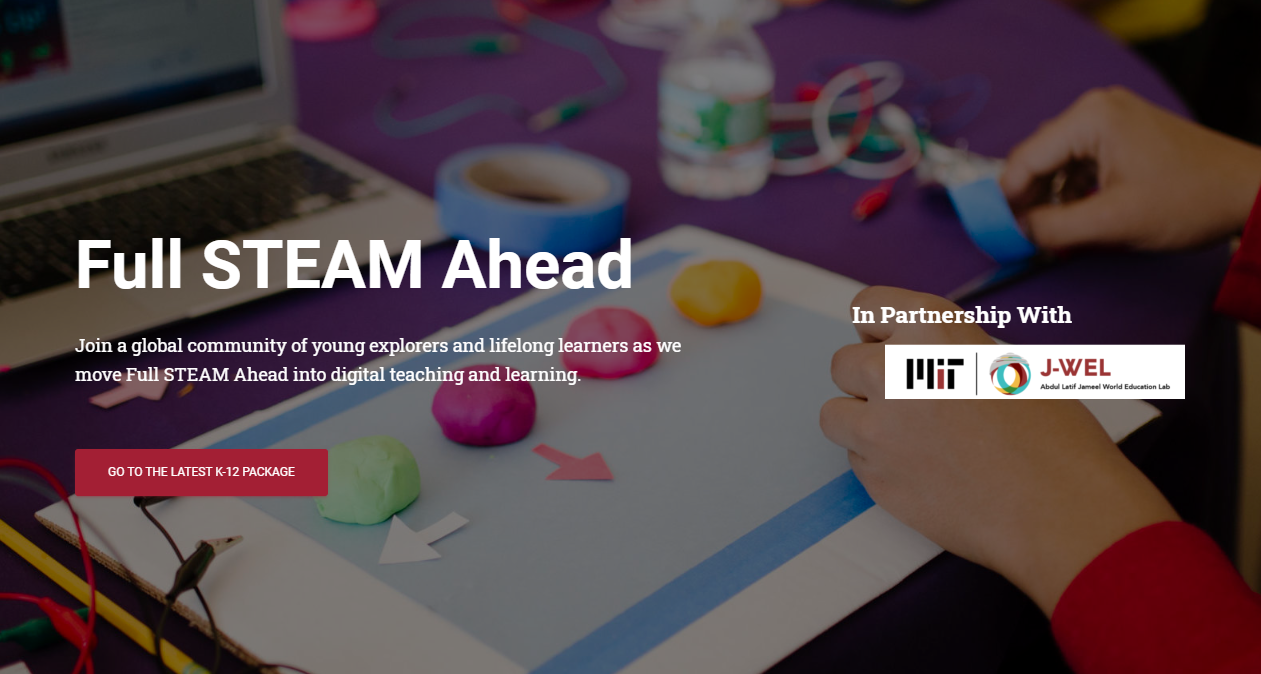
ENGINEERING ACTITIVIES
Explore activities linked below
Special thanks to Kerstin and Mrs. C’s Summer Science Club for sharing these resources!
- Candle Seesaw
- Engineer Personality Test
- Create a Wind-Powered Car
- Build a Better Bridge
- Car Engineering
- A Bag That Won’t Leak
- Mission Control Game
- Upcycled Suspension Bridge
- Make a Paper Helicopter
- Design a Robot
- Johns Hopkins School of Engineering Activities
- Medical Engineering Game
- Light Up the Cave
- (Compiled by Carly Hallman)
NEW ENGLAND AQUARIUM
The New England Aquarium is temporary closed through April 3, but you can explore the aquarium from afar with educators Taylor and Nick! Explore Virtual Visits and past episodes of First Friday Facebook Live:
NEAQ ACTIVITIES
The New England Aquarium shares fun activities for kids with materials that you can usually find at home.
- Ponds Freeze in the Winter — Why Doesn’t the Ocean?
- Counting the Fish in the Sea
- Make Your Own Deep-Sea Vent
- How Whales and Seals Stay Warm
- Make Your Own Sea Otter
Early Reader Books: Tidepools
Download illustrated Early Reader PDFs: Level One | Level Two | Level Three (part of the Communities Connecting to the Oceans project).
OPAK OCEAN WEBINARS
Ocean Protection Advocacy Kids provides resources on ocean and climate sciences with an arts focus. Watch educational webinars live or on YouTube, and explore follow up resources, including lessons, activities, art projects, and films.
- Jr. Ocean Detectives: An Introduction to Ocean Chemistry (Grades 5+)
- The Global Conveyor Belt: An Introduction to Ocean Circulation (Grades 5+)
- Plankton: What are they and why should I care about them? (Grades 6-12)
- Ocean Adaptations: Create Your Own Sea Creature! (Grades 2-6)
- Marine Protected Areas: Why Should We Save the Seas? (Grades 9-12)
- Ancient Tales: The Story of the Horseshoe Crab (All ages)
SKYPE A SCIENTIST
Skype A Scientist matches scientists with classrooms and students around the world using Zoom, Google Hangout, Skype, or other video tool. Families currently learning at home can visit this page to sign up for free.
Step 1: Sign up using this form.
Step 2: You’ll get an e-mail with your scientist match. This might take a few days.
Step 3: You and your scientist chat over email and pick a time to chat.
Step 4: Your family chats over video with your matched scientist with Q&A, not a lecture.
CLIMATE CHANGE
MIT Sea Grant funded researcher Scott Doney (Joe D. and Helen J. Kington Professor in Environmental Change, University of Virginia) created a 20-minute video on Earth Day, a lecture for high school level and above:
Read about his funded research project with MIT Sea Grant: Quantification of the contribution of wastewater effluent to coastal ocean acidification
FISH ACTIVITIES
MIT Sea Grant River Herring Resources
Let’s race! Check out MIT Sea Grant’s River Herring Habitat Mapping and Spawning Run Simulation tool. View more river herring mapping, simulation, education and outreach resources here.
Each spring over 1/2 million river herring migrate from the ocean up the Mystic River to the Mystic Lakes and to Horn Pond. You can help document one of the most amazing wildlife migrations in Massachusetts.
- Count Fish (Mystic River Watershed Association)
- Counting the Fish in the Sea (NEAQ Activity for Kids)
SCHOOL’S OUT SCIENCE!
Join ECOGIG Ocean Ecosystem Research for a series of fun, ocean themed webinars!
- School’s out Science – Why is the ocean important (Grades 5-8)
- Register: School’s out Science – How do we explore the ocean? (Grades 5-8)
Monday, March 30, 1:00 pm EST - Register: School’s out Science – Chemosynthesis, What’s That? (Grades 5-8)
Wednesday, April 1, 1:00 pm EST
SOUNDS IN THE OCEAN
Visit the full NOAA Fisheries audio collection to explore sounds made by marine mammals, fish, and technology, including human-made sounds from shipping, oil and gas industries.
Spectrograms, shown on the right, are a way to visualize sound frequency over time. Scientists with the Northeast’s Passive Acoustics Research Group collected the sounds in this collection.
PBS GAMES
PBS Games has a wide variety of games and daily activities to choose from by topic, including:
OCEAN ART CONTESTS
2020 Marine Endangered Species Art Contest (K-12)
Celebrate Endangered Species Day (May 15) and the 50th anniversary of the NOAA by participating in the NOAA Fisheries Greater Atlantic Region’s Marine Endangered Species Art Contest.
- Read the Announcement
- Email art to: edith.carson-supino@noaa.gov
- Deadline: April 24, 2020
2020 Perfect Vision: Illustrating the Biodiversity of Stellwagen Bank National Marine Sanctuary (K-12)
- Read the Announcement
- Questions? Email: anne.smrcina@noaa.gov
- Deadline: May 1, 2020
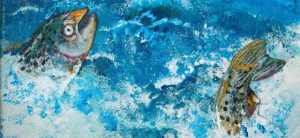
OCEAN & CLIMATE PODCASTS
Here are a few climate and marine-related podcasts and episodes that we love!
- The Journey to the Deepest Part of the Ocean | Tumble Science Kids Podcast
- Today I Learned: Climate | MIT Climate
Hear from scientists breaking down the science, technologies, and policies behind climate change impacts, and what we can do. - Two Heartbeats A Minute | NPR Invisibilia: An unlikely team of technologists and biologists tackle climate change with an out-of-the-box tactic: using machine learning and AI to translate whale sounds.
CITYNATURE CHALLENGE
MIT Sea Grant collaborated to develop a web-based data collection protocol for citizen scientists and the National Park Service, for use in research and management planning.
The Delectable Oyster Quest is one of six data quests run by the Boston City Nature Challenge. The goal of this quest was to document the various species within the order Ostreidae, or true oysters, that live in our harbor. By recording the presence of oysters along our coastlines, citizen scientists helped determine whether our native oyster is holding its own, or whether the exotic European oysters truly are taking over.



